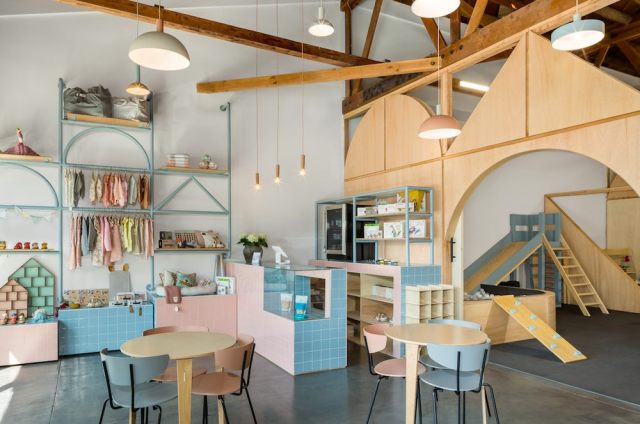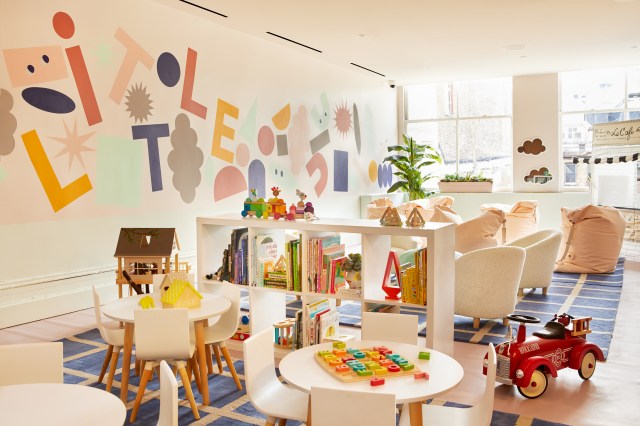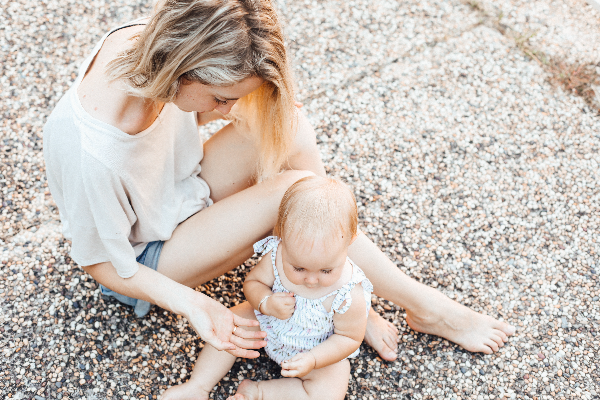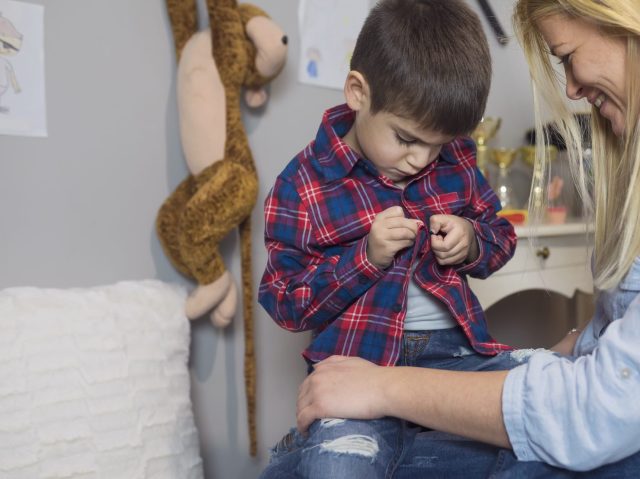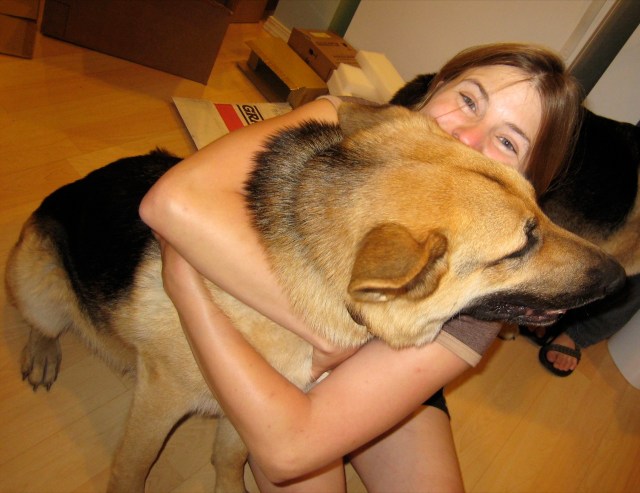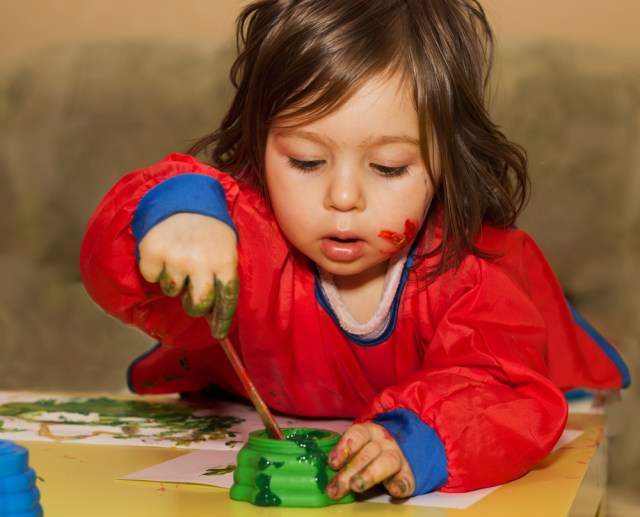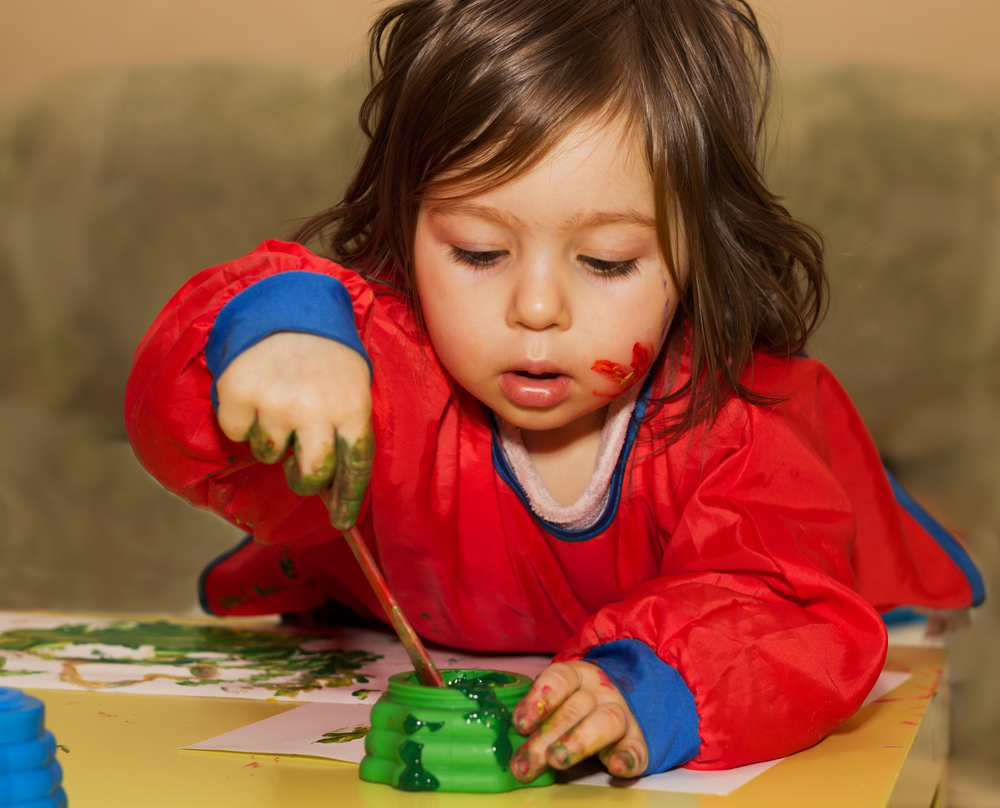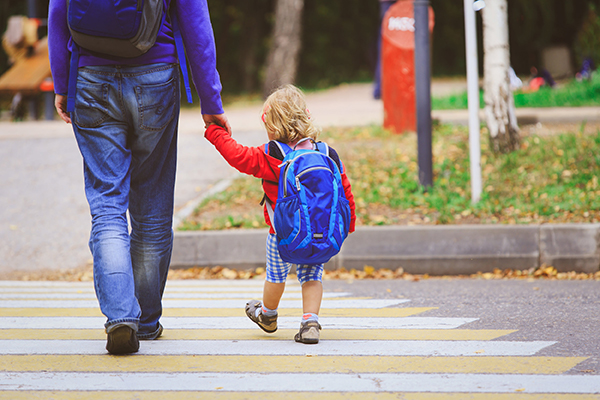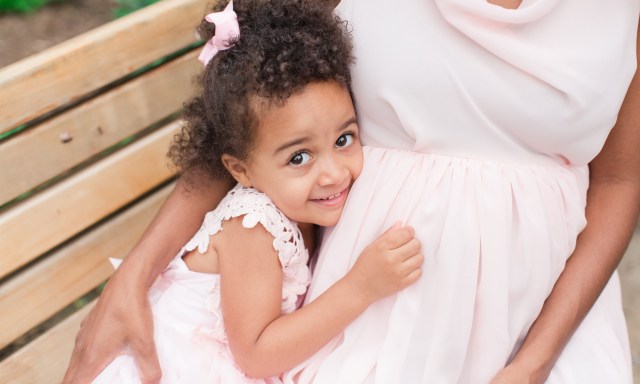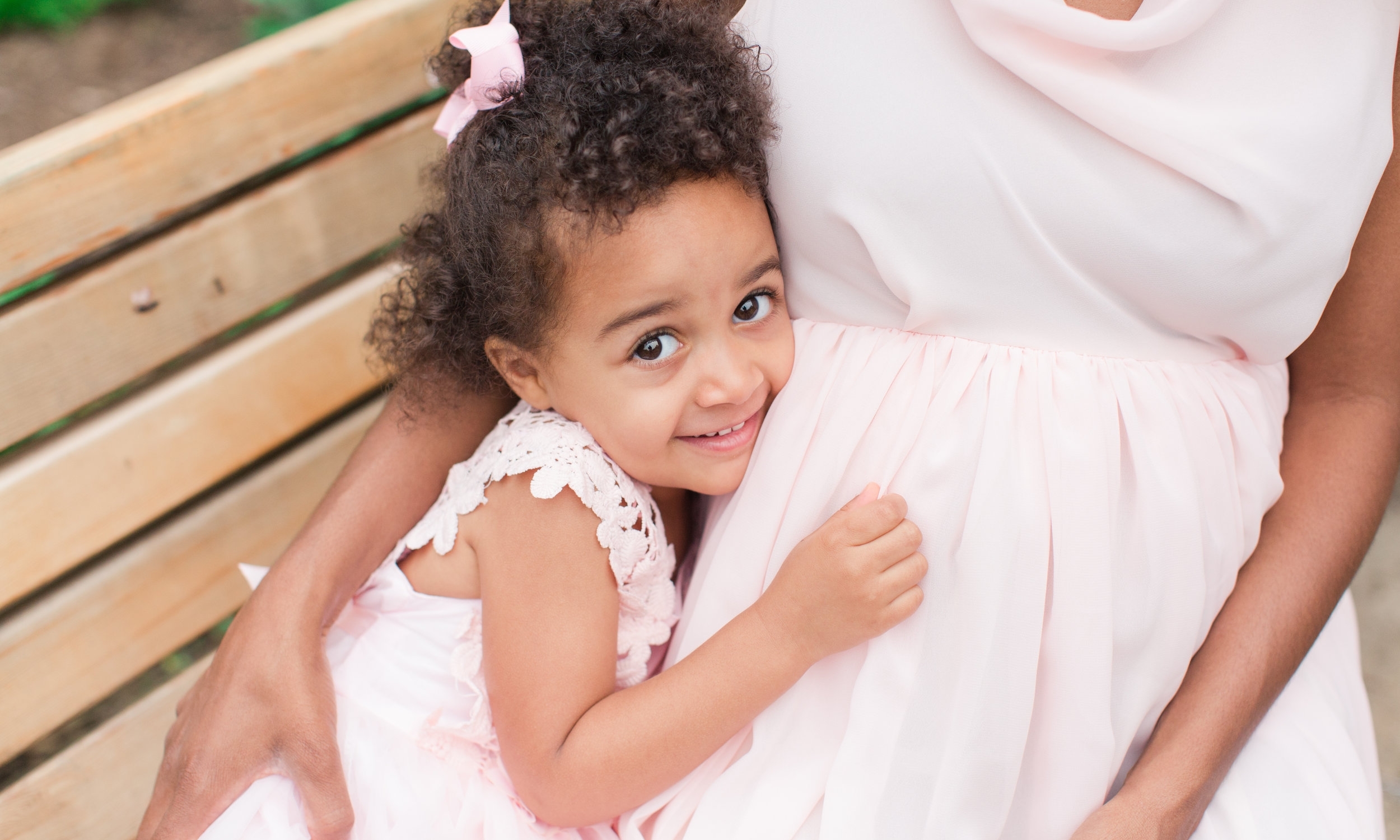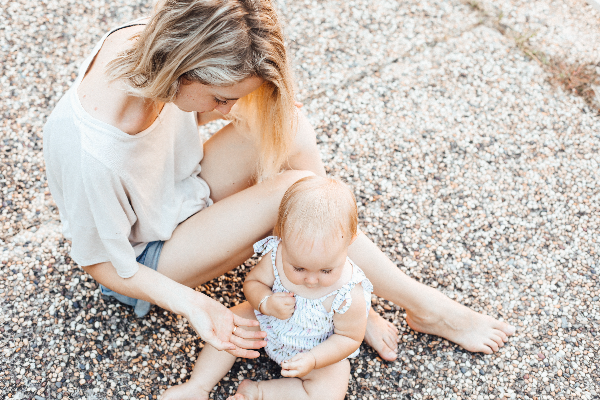
“Just give the kids to their Dad. Why are you making things harder than they need to be?”
Sometimes I overthink things. I’m not alone in this, and I agree there are simple solutions to the ‘kids only want me’ issue. Namely, give the kids to their dad and walk away. Boom. Done. In practice, however, it’s not always that easy. Or it doesn’t seem that easy even if the action is a simple one. Why do moms limit themselves or over think actions that, on the surface, take two seconds?
I’ll take “Mommy Guilt” for $3000.
It’s the category that houses most of the issues in the ‘Why we make things harder for ourselves?’ Jeopardy game is the ever-present existence of Mommy Guilt. If you’re a mom, you know what I’m talking about. If you’re a dad, there may be a similar thing, but it’s likely a different beast and the subject of another article. It’s possible to ignore Mommy Guilt, and some are perhaps successful in doing so. (I’ve never met those people.) Everyone feels this guilt at some level. The guilt and expectations of motherhood and womanhood are all-encompassing and exhausting.
To get a taste of mommy guilt (if you haven’t already), imagine you’re trying your best to do everything right, yet you have this haunting feeling that you should be doing more, better, or something entirely different every moment of the day. Comedian Jim Gaffigan’s joke about having four kids comes to mind: Pretend that you’re drowning, then someone tosses you a baby! If you work outside the home, you feel like you should’ve stayed home. If you stay home with the kids, you feel like you should be working. The kids’ lunches should be healthier, more creative, and each needs a personalized note. Your kids should be better dressed and smarter and well-behaved enough to succeed, but not so much that they follow others blindly. And you should have a rockin’ bod like the moms on Instagram, even though you feel guilty when you go to the gym because you should be with your family. No article could ever outline all the facets of Mommy Guilt, but I’d like to try. (At the risk of outing myself as a chronically anxious person!)
The Separation Anxiety.
In the early days, there’s the separation anxiety. When you manage to go somewhere alone, separation anxiety makes you feel like you shouldn’t have left your children. This is a normal process and can last a long time if you don’t practice trusting others. I remember my jaunts to TJMaxx (in the early days that’s where I ended up most of the time, if not at the grocery store), where after about 35 minutes, I got this super panicky feeling in my chest. Not quite a full blown panic attack, but definitely a looming sense of “Call them, text them, see if they’re ok’. I actively resisted that feeling, because I knew when I got home everyone would be fine. All the lights would be on and the place would be a mess, but everyone would be happy and alive. Plus, I wanted my husband to know that I trusted him.
The Work/Home Decision.
If you work outside the home, you feel guilty if you don’t want to spend time with your kids when you’re home. You’re a bad mother because you haven’t seen them all day, yet you’re now wanting to give them to your husband for some quiet time or space or workout. How selfish of you! Or at least that’s what we think to ourselves, and hear from well-meaning people who ask why we’re not with our kids. These are the people to avoid if possible. Also, if your husband works as well, you are encroaching on his relaxation time. So you feel guilty about that too. (Keep in mind, however, studies consistently show that moms do more work at home even when they work full time AND have supportive, involved husbands.)
If you don’t work outside the home, you might internalize that what you’re doing—even though it’s extremely valuable for your family, your spouse, and society at large—is not valuable. After all, there’s no monetary value associated with raising humans. You feel your husband needs his time to relax because he’s been working all day. As a stay at home mom myself, I felt I chose the “mom” job. If I sought time away from my job, then I wasn’t doing a very good job! The problem with this, of course, is that the mom job never ends. It’s 24/7, all the time, for the rest of your life. If you don’t learn to create some space for yourself and pursue your passions outside the family, then your life is going to feel like you actually aren’t in it anymore. And nobody wants that, least of all you. You’re lovely when you’re rested and fun and sparkling with the bits of life that light you up. But it’s a feeling that I know many stay at home moms have: that they should be doing it all because it’s now their J.O.B. Taking a break feels like they’re not doing enough, not holding up their end of the deal.
What was it I needed?
Sometimes moms forget what it is they need or want because they’ve been focused on other people’s needs for just long enough to forget their own. This makes it even harder to speak up because they’re not sure what to say. It feels silly to advocate for something when you can’t pinpoint what it is you’re advocating for. It sounds odd to say, “I need to reconnect with my inner sense of self” because what does that even mean? Cue the additional guilt associated with allowing your sense of self to disappear without even realizing what was happening.
The Guilt about Guilt
You might identify with these head games, or think it’s overanalyzed hogwash. Either way, it’s real for those who experience it. It can be embarrassing to admit your brain is overrun with guilt, especially when you’re normally a strong, smart, confident person. You feel guilty about feeling guilty, which leads to shame and a sense that you don’t want anyone to know you’re feeling this way. You suffer in silence. (I realize there are worse things in the world that people endure, which as luck would have it, also contributes to the guilt about feeling guilty! How can you complain about your situation when all these horrible things happen to others?) Your partner likely has no idea what’s going on in your head, so you need to talk about what’s going on for you. (As does he, of course. Ideally, this would be an ongoing conversation about how to keep everyone happy and healthy.) Everyone benefits when you take time for yourself.
Add Extra Challenging Kids.
Having challenging children creates another layer of Mom Guilt. Since you may intuitively understand your kids and their needs—or at least you’re committed to figuring them out—you feel you’re the best at soothing, understanding, managing, or doing an infinite number of tasks. You might get your kids better, be able to calm them, or do things just so. You may have done the research about what works for kids like yours, and so you feel you know best. And that might all be true.
You still need space and time to yourself. So this element of parenting must be another element of the conversation. Not that you can tell your spouse how to parent, but communication is essential. If you’re the only holder of this miraculous knowledge of things that work, you’re creating a bottleneck for yourself in addition to setting yourself up for more guilt AND setting your partner up for a less than stellar experience. They are his children too, and he needs to know what’s going on and at least have the information about what works best.
Once you’ve agreed on your overall parenting approach, embrace your individual parenting styles. When you have children with special needs, parenting methods need to be an ongoing conversation about what works, what doesn’t, and how to tackle things as they constantly change. This eliminates the need to teach your husband because you’re in it together, but it also requires that you let go of what things are supposed to look like.
The Burden Rests with Mom.
Sometimes doing things yourself is easier than 1) teaching others or 2) letting go of the “right” way. It takes work to push past this path of least resistance, but it’s better for everyone in the long run. Unfortunately (or fortunately), the change starts with you. Your partner may not know or realize what’s going on in your head or the pressure you’re feeling from every direction. Communication is necessary. Even if they do realize what’s up, if you don’t communicate how you’re feeling, they’re likely going to assume all is well. That’s why it’s so important to talk about Mommy Guilt in whatever form you’re experiencing it. Your guilt may not match what I’ve discussed here, but there are a million versions of Mommy Guilt. Further, when we don’t share our worries and fears, they get bigger. They become easier to believe.
When we communicate, we usually learn our assumptions aren’t the truth. Mommy Guilt is a snowball of social constructs that all converge in our heads to make us feel like we shouldn’t be allowed to have space or time to ourselves. Again, maybe men have an equivalent, maybe they don’t. But opening up the conversation helps get rid of Mommy Guilt and it gives your husband a window into why certain things can feel harder than they need to be. (You may even learn that he’s got his own version that you didn’t know about!)
Communication is Key.
Dealing with Mommy Guilt is part of the process of being a mom in today’s world, and it’s best to ditch most of it. You’re not a bad mother if you feel guilty or if you don’t. You’re not a bad mother if you take time for yourself or if you don’t. Your kids will be fine no matter what you do (assuming that you’re actively parenting in some fashion), though I’ll argue every day that they thrive more when you thrive too. It’s an opportunity to make sure that you are fine and fabulous as you weather this parenting journey, so you help eradicate the Mommy Guilt for yourself and others! Lots of moms have given themselves to their families only to have kids move away and their relationship fizzle. Then you’re finding yourself again after years of doing for others. Don’t listen to the guilt; stay connected with your self apart from your role as wife or mother.
You need space and time to be you without any other humans attached. Have hobbies, go for walks, do yoga, simply breathe air somewhere where no one needs anything from you. In order to be your best, you need this time. It benefits everyone when you feel recharged and excited about your family. You are their world, and you want them to know that you love them more than anything! And to do that well you need to also love yourself more than anything. There’s more love to go around when you love yourself, so that’s a bonus. Make yourself a priority and everything shifts.
Cara Maclean, Wellness Coach & Writer, works with moms to undo what keeps them exhausted. We cultivate the calm, joyful energy needed to handle any challenge with humor and grace. Author of Just the Way It Is: A Look at Gifted/2e Families, Spring 2022, GHF Press. Learn more at CaraMaclean.com










